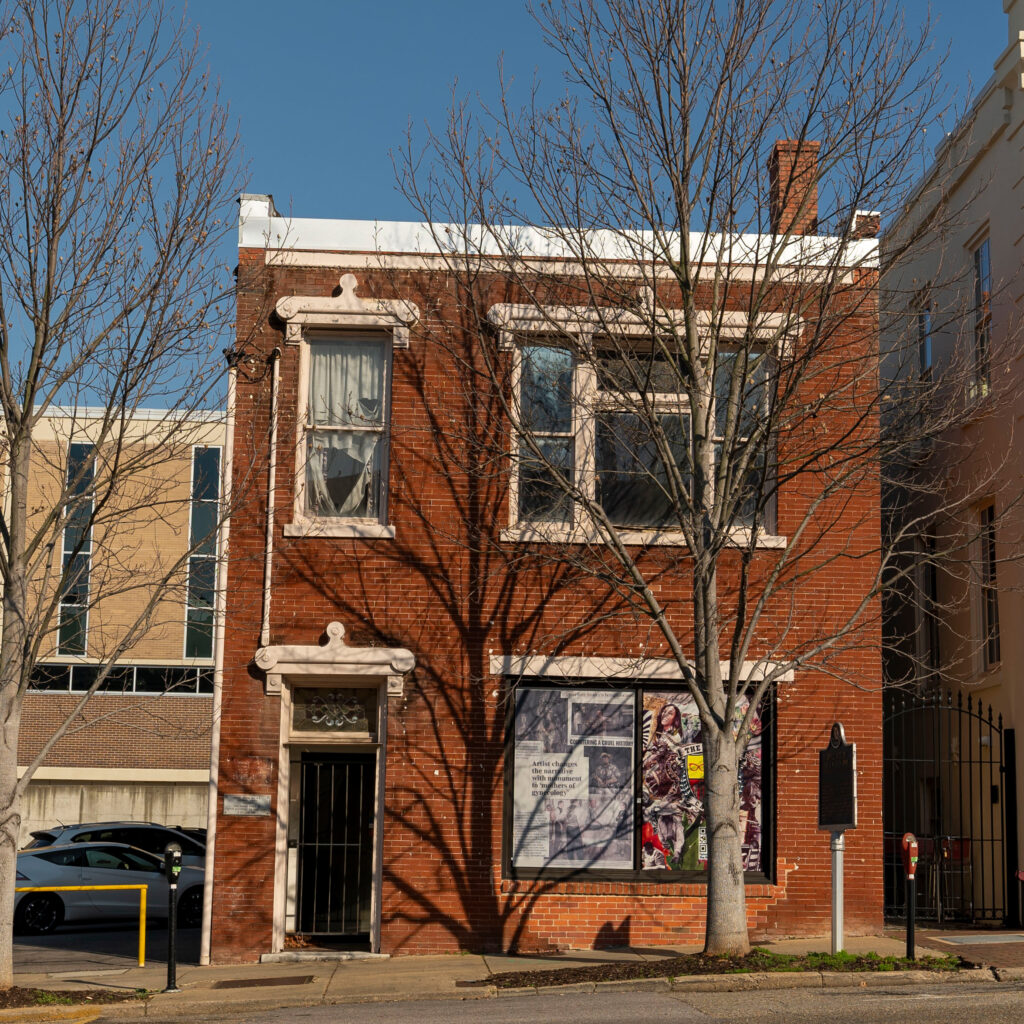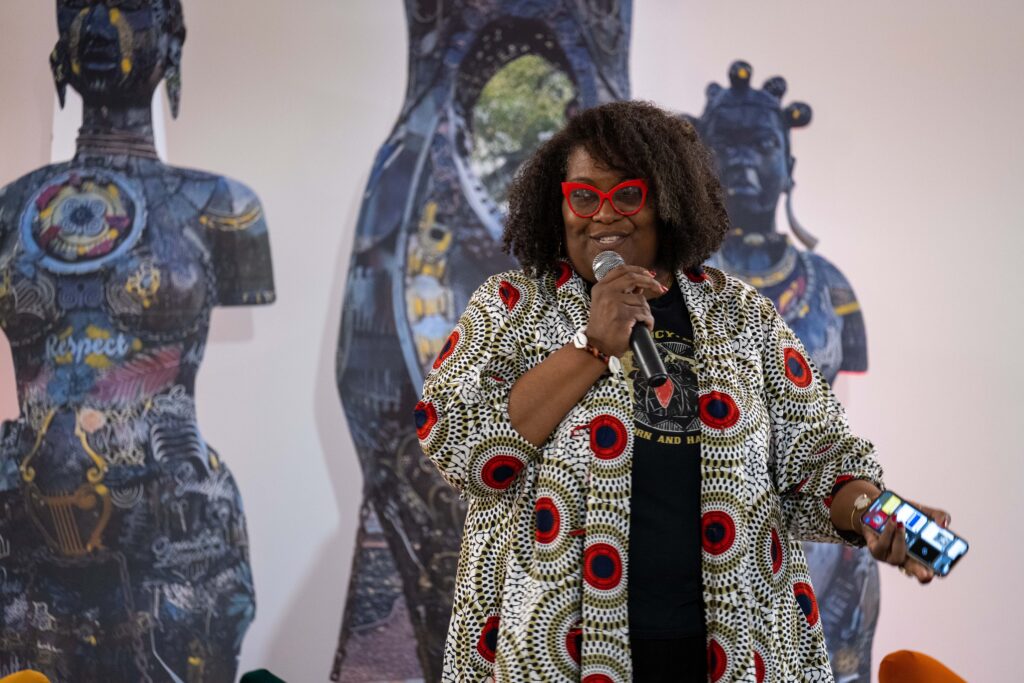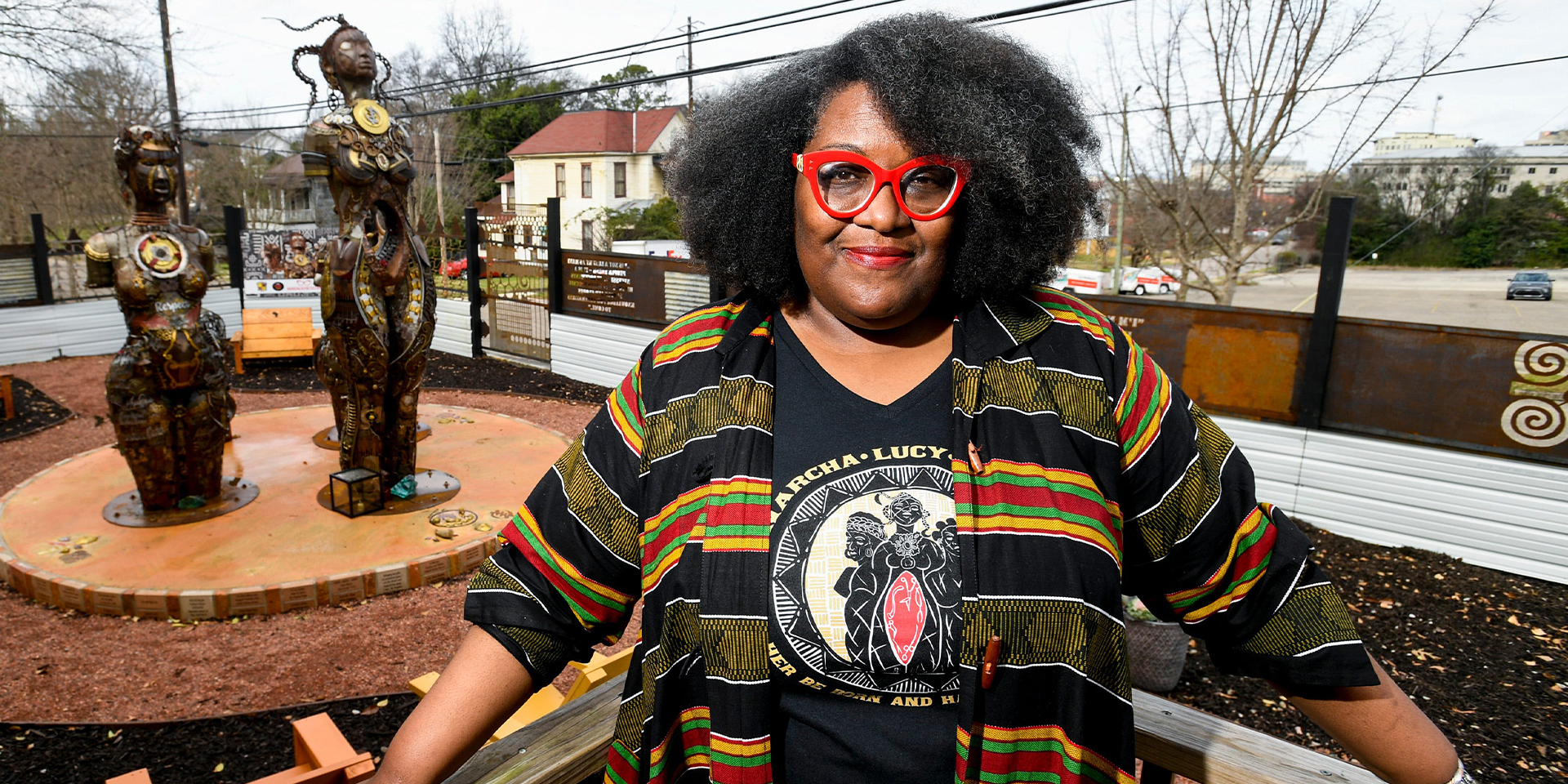Two years ago, Michelle Browder converted a camper van into a mobile medical resource center for pregnant women. She equipped the van with medical supplies to check vital signs, blood pressure and glucose levels, as well as information on health and nutrition.
A local artist, entrepreneur and activist, Browder and her team hit the road, criss-crossing Alabama’s Black Belt region from Montgomery to Selma, in Dallas County, and Tuskegee in Macon County. The two mostly rural, predominantly Black cities highlight the barriers that Black women who live in poverty face when they seek reproductive care in the state.
The mobile clinic is one facet of Browder’s ongoing advocacy, which is needed in a state where 34% of counties do not have reproductive care providers. Medicaid expansion has not advanced in Alabama, and Black women and their babies are more likely to die than those of other races and ethnicities in the U.S.
“There are many factors that are contributing to these women’s condition and their need for support,” Browder said. “The information we’ve collected has been a sober reminder that there’s more to this story than what we’re seeing in terms of poor outcomes.”
The “mob-pod,” as Browder calls the mobile health van, is a physical manifestation of the Montgomery-based artist’s effort to improve reproductive health care and outcomes for mothers and babies in low-income-earning communities. But her efforts expand far beyond the chassis and wheels of the roving clinic.
Pregnancy and postpartum — when a women’s body is recovering from pregnancy and delivery — are critical times in a mother’s and her infant’s health. That’s why Browder in January launched an initiative called “Mother’s Rest” to provide new and expecting mothers a space where they could decompress, seek resources and enjoy community. Alabama has the third-highest maternal mortality rate in the country and the 14th-highest infant mortality rate in the nation. A disproportionate share of those deaths are of Black mothers and their babies.
Browder is ramping up her advocacy over the next several days, closing out Black History Month and beginning Women’s History Month by hosting the Anarcha, Lucy, Betsey Day of Reckoning Part 4 conference. The conference begins Feb. 28 at the Southern Poverty Law Center’s headquarters in Montgomery. It will include a bus tour to Selma on March 1 and will close at the Alabama Capitol on March 2.
Michelle is a shining example of a leader with creativity and commitment to community who can deliver solutions that make a real difference in the lives of mothers and their children.”
Margaret Huang, president and CEO of the SPLC
Browder will also join a March 6 panel discussion at the SPLC’s headquarters in Montgomery on the criminalization of reproductive rights. The event is one of several SPLC-sponsored programs commemorating the 60th anniversary of Jubilee that honors the sacrifice and activism of the “foot soldiers” who marched, while under attack by state and local law enforcement, across Selma’s Edmund Pettus Bridge to demand their rights as citizens. Their advocacy ultimately led to the passage of the Voting Rights Act of 1965.
“Many people fail to realize that reproductive justice is interdependent with economic and racial justice,” said Margaret Huang, president and CEO of the SPLC and a featured speaker at Browder’s conference. “As many states, especially here in the Deep South, move toward criminalizing pregnant people, it’s critical that we enhance access to quality health care for those who have been systematically underserved.”
Challenging the status quo on maternal mortality
Browder’s reproductive health advocacy has grown from her efforts as an artist and local tour guide seeking to confront the realities of her city’s complicated past — one of those being the legacy of J. Marion Sims. Referred to as the “father of modern gynecology,” Sims practiced as a physician in Montgomery, developing gynecological tools and methods by performing painful experimental surgeries on enslaved Black women. For this work, he has been memorialized with a monument that stands at the state Capitol, where the conference will end.
Browder is leading a petition drive supporting the relocation of the Sims monument from the Alabama Capitol to the site of his former clinic in downtown Montgomery. She also challenged the city to contemplate the reality of the women who endured Sims’ experiments in her 2021 art installation “Anarcha, Lucy and Betsey, The Mothers of Gynecology.” She built her own memorial to their memory, a 15-foot-tall monument of metal erected in honor of the enslaved women Sims operated on without their consent or the use of anesthesia.

Last year, Browder purchased the building where Sims conducted his experiments and operations. She plans to transform his former Negro Women’s Hospital, where Black women had no say in their own medical decisions, into a clinical museum and health care site known as the Mothers of Gynecology Clinical Museum. Although Browder is still in the fundraising phase for the project, her goal is for it to serve as a teaching clinic for visiting medical students as well as a place where people earning low incomes can seek reproductive care of their choosing, whether it be from a doctor, midwife or doula.
“We’re hoping that the clinic will be able to offer additional support,” said Browder. “We’re looking for partners in health care, and we’re looking for support in lobbying for better policies. This clinic is not going to be a total solution to Alabama’s maternal mortality crisis, but it will be something that can help bridge the gap.”
Browder has been intentional about her inclusion of midwives and doulas in her reproductive care philosophy. Midwives — who were once integral to rural communities across the South because of poverty and racial segregation, among other factors — were ridiculed and denounced by white, male Alabama physicians in the late 19th century. Browder said she sees their inclusion not only as an acknowledgment of the racial and gender dynamics at play then and now, but a way to ensure that people seeking services have a broad suite of options at their disposal.
This comes at a time when reproductive care options continue to shrink across the state, along with women’s rights to bodily autonomy.
“It’s horrific that Alabama communities, specifically those in rural areas, are being deprived of essential reproductive care,” said Tafeni English-Relf, director of the SPLC’s Alabama state office. “Areas left without vital services leave thousands of residents without essential health care coverage, leading to delayed care and tragically higher infant and maternal mortality rates.”
Only 26 Alabama counties afford women full access to maternity care. The remaining 41 counties offer little to no access to these vital services, with more than half qualifying as “maternity-care deserts,” counties without a hospital or birth center that offers obstetric care.
“This coverage gap exacerbates long-standing health disparities, especially in vulnerable communities like the Black Belt,” said English-Relf. “Licensed midwives can be highly advantageous in addressing infant mortality rates and integrating them could help bridge the gap in care, improve maternal and infant health outcomes.”
HB 312, a midwifery expansion bill introduced in the state Legislature that would have allowed licensed midwives to provide care at these birthing centers, died in committee last year. Two additional bills — SB 87 and HB 257 — have been introduced this year, supported by the state’s midwifery board. They clarify existing law on the care midwives can provide in the state.

Browder’s mob-pod and future clinical museum are part of a larger attempt by advocates to expand birthing and care options in the state. In 2023, a group of doctors and midwives filed suit against the state’s health department for its “de-facto” ban on freestanding birthing centers, which allow patients to seek care outside of hospitals.
People who would like to learn more about Browder’s clinic and her broader reproductive justice advocacy can visit its website.
“Michelle is a shining example of a leader with creativity and commitment to community who can deliver solutions that make a real difference in the lives of mothers and their children,” Huang said.
Image at top: Michelle Browder poses with her “Mothers of Gynecology” memorial in Montgomery, Alabama, on Feb. 22, 2022. (Credit: Mickey Welsh/Advertiser/USA Today Network)


